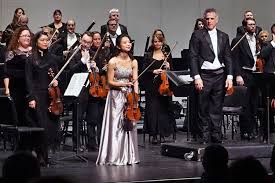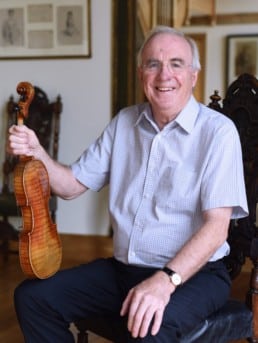Vienna remembers founder of Israel Philharmonic
NewsThe city of Vienna has honoured the violinist Bronislaw Huberman, the soloist who in the 1930s rescued as many as 100 Jewish musicians from Europe and formed them into the Israel Philharmonic.
Vienna’s Mayor Michael Ludwig inaugurated a commemorative plaque in the courtyard of Hetzendorf Castle in Meidling at a ceremony on Friday. Among those present was the present conductor of the IPO, Lahav Shani.
Ludwig called Huberman ‘a great humanist and European’.






Comments